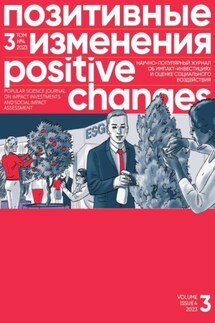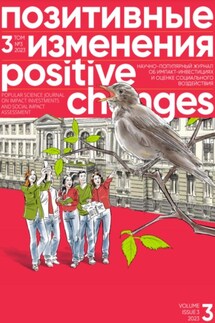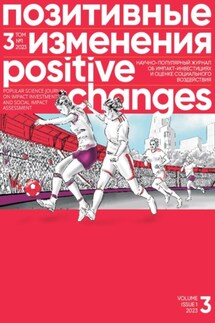Позитивные изменения. Тематический выпуск «Экономика будущего» (2023). Positive changes. Special issue «The economy of the future» (2023) - страница 28
Artem Shadrin: Two things seem most significant to me: first, economic growth, technological development, growth in prosperity will continue with any forecast short of a catastrophe. Therefore, one of the trends will be a reduction in the amount of time people devote to paid work in the traditional model, and an increase in the share of leisure time, or activities motivated by non-economic considerations – charity, volunteerism, etc.
As the overall wealth increases, it will become possible to choose a job that may bring more satisfaction and less money. In other words, a higher average salary will be losing its significance in favor of other factors, such as a comfortable team – colleagues, management, atmosphere, and understanding of the importance of the activity carried out, its creative, non-routine nature.
The second important thing is that you will have to change faster, to be more flexible if you want to be the winner, including an economic victory. Thus, the number of enterprises for which continuous changes become the norm and which are transformed from force majeure to the practice of regular management will increase all the time. Further spread of mechanisms such as agile, corporate entrepreneurship, and corporate universities will continue.
On the other hand, in the conditions of rapid changes, small and medium-sized businesses, startups, which are more motivated and faster decision-makers than many large enterprises, will gain additional competitive advantages. This additionally raises the priority of dedicated startup financing mechanisms, such as venture capital financing and business angel investment, helping those players who are early in the enterprise lifecycle to reach a scale that allows them to operate successfully.
To summarize, an answer will be provided to the challenge associated with the need to consider the intangible, motivational component in the work. And the transformation of management tools of large companies will be guaranteed, which will lead to an acceleration of corporate innovation.
Vasily Burov: I think the story about social relationships, about involving people in the public, is very important. Right now, our general, and the one a little younger, are basically the last people to have an idea of what it is like not to be in touch all the time. It is a story about social relationships, about mutual help, etc. When the need for intermediaries linking people at different times and places disappears, it greatly changes social behavior and horizontal social relationships. New relationships have not yet been born, but there is a kind of substitute for them. I am talking specifically about the human-to-human communication in a network which has never been as dense as it is now.
Artem Shadrin: And this is facilitated by technologies, take videoconferencing for example.
Kirill Ignatyev: Continuing with the first presentation, I would like to offer a few theses from today’s "tomorrow," so to speak. First of all, two reservations must be made.
Until the current technological paradigm changes, the economy, which just recently was developing according to the global model, will become mixed (a world of blocs), as it adjusts to the adoption of sanctions, the creation of tactical alliances and conflicts. On this basis, we can foresee parallel technological services emerging in each bloc, and the growth of new forms of corruption associated not with the leading role of the state, but with the introduction and circumvention of inter-bloc restrictions. One might say that corruption is entering the global level.





